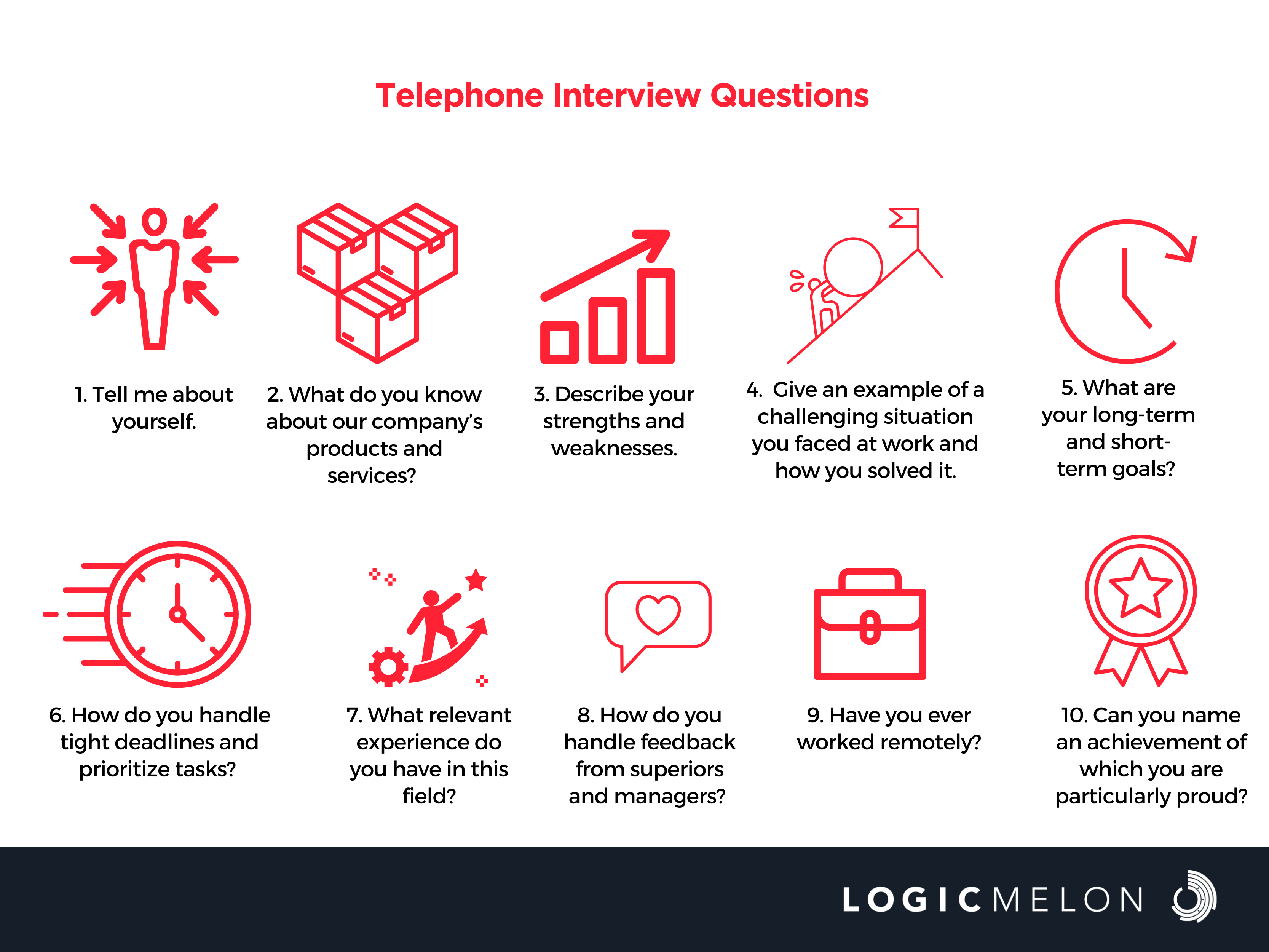Telephone Interview Questions
The telephone interview—a virtual gateway to your dream job. Whether you’re applying for a freelance gig, remote work, or any position that doesn’t require extensive face-to-face meetings, mastering the art of the telephone interview is crucial. In this blog, we’ll explore the key questions you might encounter during this type of interview and share some valuable tips to help you ace it with confidence. So, grab a cuppa and let’s dive in!

1. Tell me about yourself.
“Alright, mate, tell us a bit about yourself.” This question is your chance to shine! Highlight the skills and experience you’ve gathered over the years, focusing on their relevance to the job at hand. Remember to maintain a friendly and clear tone while answering. 40% of recruiters will not hire candidates who are not confident in themselves.
2. What do you know about our company’s products and services?
“Oi, what’s the scoop on our company, then?” Show off your knowledge about the company’s culture, values, and industry reputation. This question aims to test whether you’ve done your homework and are genuinely interested in joining their team. So, make sure to do a bit of research beforehand.
3. Describe your strengths and weaknesses.
“Give us the lowdown on your strengths and weaknesses.” Emphasize your strengths that align with the job requirements. And don’t worry, we all have areas where we can improve. Discuss how you actively work on your weaknesses and strive to get things back on track.
4. Give an example of a challenging situation you faced at work and how you solved it. “Tell us about a time when you faced a right tricky situation at work. How’d you sort it?”
Showcase your problem-solving and decision-making abilities by narrating a recent example from your work history. Highlight the steps you took to overcome the challenge and the skills you employed.
5. What are your long-term and short-term goals?
“What’s the grand plan, mate? Long-term and short-term goals?” Explain how the job you’re applying for aligns with your long-term aspirations and how it contributes to your personal growth. Remember to speak clearly and at a moderate pace, as the interviewer will be taking notes.
6. How do you handle tight deadlines and prioritize tasks?
“How do you keep your cool when the deadlines are looming? How’d you prioritize tasks?” Share your tried-and-tested methods of prioritizing and organizing tasks, setting deadlines, and utilizing project management tools. Employers appreciate candidates who show a keen interest in understanding what it’s like to work in their organization.
7. What relevant experience do you have in this field?
“Tell us about your experience in this field, mate. Any juicy details?” Elaborate on your work history, focusing on experiences directly related to the industry you’re currently in. This question allows you to highlight previous job roles, projects, and certifications, demonstrating your expertise in the specific industry or field.
8. How do you handle feedback from superiors and managers?
“When your boss gives you a piece of their mind, how’d you handle it?” Employers want to assess your ability to receive and act upon feedback. So, talk about how you use feedback to improve your performance. They’re also keen to understand which management style would help you unleash your full potential.
9. Have you ever worked remotely?
“Ever done the ol’ remote work gig? What’s your experience, mate?” If you’ve worked remotely before, share your insights into handling the challenges that come with it. Employers want to know if you’re suitable for a hybrid work environment and whether you’ve got strategies in place to thrive in a remote setup.
10. Can you name an achievement of which you are particularly proud?
“Tell us about something you’ve achieved that makes you puff your chest out, proud as can be.” Choose an accomplishment that showcases your skills and experience, and explain its positive impact on your journey. This could be a project you’ve completed or personal achievements that have shaped you as an individual.
Frequently Asked Questions
1. How do you prepare for telephone interview questions?
“The best way to nail the telephone interview, innit?” Stay focused, listen attentively, and respond accordingly. Since you won’t have the luxury of re-reading the questions or relying on body language, it’s essential to prepare in advance. Familiarize yourself with potential questions and formulate well-crafted answers.
2. What is a telephone interview?
“What’s all this fuss about telephone interviews, anyway?” Telephone interviews are initial screening processes used by recruiters to determine if a candidate meets the requirements for further consideration by the hiring manager.
3. What is the importance of phone interviews?
“Are phone interviews really that important?” Absolutely! Phone interviews are efficient, saving time and money for both recruiters and candidates. They provide a convenient alternative to in-person meetings and allow interviewers to assess critical and interpersonal skills.
Closing Thoughts
To gain an edge as a job candidate, make sure to thoroughly research the company’s culture and values. Alongside preparing answers to common interview questions, compile a list of questions to ask the interviewer. By demonstrating your knowledge and engagement, you’ll leave a lasting impression. These telephone interview questions and tips will empower you to navigate the process with finesse and secure that dream job. Best of luck, and may your phone interviews be smooth sailing!
LogicMelon
Award-winning recruitment software that will find, attract, hire and analyse the way you want to work. At LogicMelon, we have experienced software recruitment marketing specialists to help you build effective recruitment solutions supported by the best customer service you’ll find anywhere!
Email: sales@logicmelon.com or call LogicMelon (UK) +44 (0) 203 553 3667 (USA) +1 860 269 3089
Recruitment Data Visualisation: Everything You Must Know
As a recruiter, you go through a lot of information daily. Recruitment data visualisation simplifies the complex data, making it easier to understand and act upon.
The Role of Soft Skills in Leadership Recruitment
In leadership development, soft skills are essential for identifying individuals who can not only manage but also inspire and guide teams to success.
ATS and CRM in Talent Acquisition
By utilising the strengths of ATS and CRM, organisations can create a comprehensive talent acquisition strategy that combines relationship building with an efficient hiring process.


